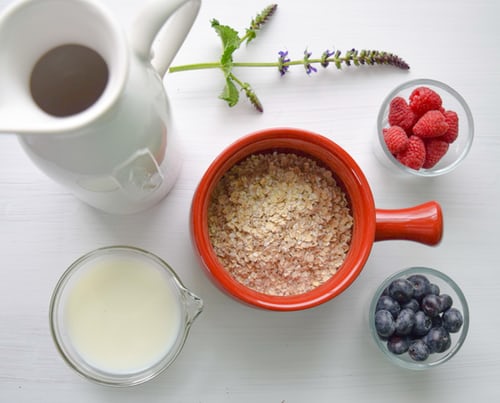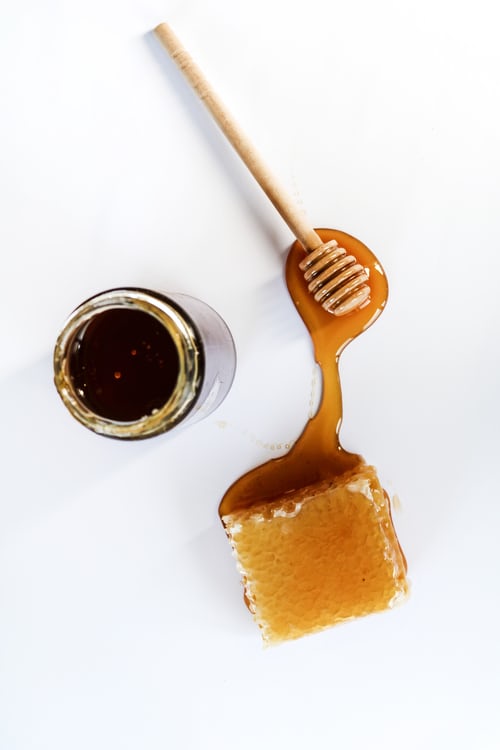What is the difference between the Low FODMAP Diet and a gluten-free diet? | FODMAP Friendly
Posted on November 16, 2019
What is the difference between the Low FODMAP diet and a gluten-free diet?
The difference between the Low FODMAP diet and a gluten-free diet can be confusing to get your head around. If a food is gluten-free, that does not necessarily mean it will be low in FODMAPs. On the other hand, some gluten-containing foods are low FODMAP and safe to eat on the Low FODMAP diet.

Are you unnecessarily avoiding certain foods while following the Low FODMAP diet?
As a recap, FODMAPs are a group of short-chain carbohydrates that are fermented in the large intestine. This fermentation leads to the production of gases and trigger symptoms in people with IBS such as bloating, diarrhoea, constipation, excessive flatulence and abdominal pain.
Gluten is a protein found in wheat, rye, barley and food products containing these grains. A gluten-free diet is a therapeutic diet for people with coeliac disease. In people with coeliac disease, the immune system reacts abnormally to gluten, resulting in an inflammatory reaction and damage to the lining of the small intestine. Eliminating gluten from the diet is essential for management of coeliac disease.
Note: Coeliac disease is a serious autoimmune disease where the gut lining becomes damaged. If left untreated, affected people may experience gastrointestinal symptoms, poor nutrient absorption and nutrient deficiencies. Untreated coeliac disease can also lead to complications including osteoporosis, problems relating to fertility and dental problems. If you are concerned that you have coeliac disease, it is important to visit your general practitioner to get tested. A gluten-free diet should not be started before the coeliac disease has been properly diagnosed, to ensure an accurate diagnosis.
The overlap between gluten and FODMAPs:
There is some overlap with the Low FODMAP and a gluten-free diet, as gluten and FODMAPs are often found in the same food products. The main grains that contain gluten (wheat, rye and barley) are also high in FODMAPs, mainly oligosaccharides. This is why many gluten-free food products are also Low FODMAP.
In the absence of coeliac disease, the current research supports reducing FODMAP intake, rather than gluten, as a proven dietary strategy to help relieve symptoms of IBS.
Gluten-containing Low FODMAP foods:
- Sourdough (spelt or wheat) bread, such as 2 slices Alpine Breads Spelt Sourdough
- Soy sauce (2 tbsp)
- Rolled oats (1/2 cup) – in Australia they are considered gluten-containing
- Wheat-based snacks such as 2 small plain biscuits, ½ cup pretzels
- Low FODMAP products with tiny amounts of gluten such as yeast spread (Vegemite).
- Also gluten cross-contamination is not a concern on the Low FODMAP as it is for those on a gluten-free diet for coeliac disease.

If you don’t have coeliac disease and are following the low FODMAP diet to manage IBS, then it is important to not exclude foods unnecessarily. Eating a wide variety of food is important to ensure you are consuming a range of nutrients the body requires to function optimally. Unnecessary food restriction may also lead to stress and worrying when eating out.
It is important to be aware that a number of gluten-free foods and food products are high in FODMAPs. Depending on the serving size, some of these foods are not suitable during the elimination phase of the low FODMAP diet.
High FODMAP gluten-free foods:
- Soy flour
- Coconut flour
- Besan (chickpea) flour
- Inulin & chicory root
- Honey
- Molasses syrup and agave syrup
- Dried fruits including dates, mango, sultanas, pear
- Various fresh fruit and vegetables including onion and garlic
- Various legumes at medium-high serving sizes such as ½ cup chickpeas, black beans, cannellini beans
- Some gluten-free breads are high FODMAP at 2 slices, if made from high FODMAP flours.

In summary…
If you do not have coeliac disease, eating a gluten-free diet may be unnecessarily restrictive. It can create some confusion when following a low FODMAP diet for IBS management, as not all gluten-free foods are Low FODMAP.
To assist with finding low FODMAP approved products, look out for the Fodmap Friendly certification logo on food products. Check out the Certified Products tab on our website and download the Fodmap Friendly smartphone app to help you eat and shop with confidence.
For further reading, see The Low FODMAP Diet Is Not A Gluten Free Diet By FODMAP Everyday.
For further information about coeliac disease, visit this link to the Gastroenterological Society of Australia information sheet. https://www.gesa.org.au/resources/patients/coeliac-disease/







